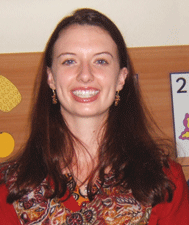 Thanks to the popular movie star Aamir Khan who produced and directed the surprise hit Taare Zameen Par (TZP), public awareness of a critical learning difficulty known as dyslexia has sky-rocketed. However, addressing this learning difficulty, which educators believe affects tens of millions of children across the country, demands more than just awareness. It calls for teachers, school managements and parents to take steps to respond to the behavioural and learning difficulties of students struggling to cope within the country’s overcrowded classrooms, with love, understanding, and action.
Thanks to the popular movie star Aamir Khan who produced and directed the surprise hit Taare Zameen Par (TZP), public awareness of a critical learning difficulty known as dyslexia has sky-rocketed. However, addressing this learning difficulty, which educators believe affects tens of millions of children across the country, demands more than just awareness. It calls for teachers, school managements and parents to take steps to respond to the behavioural and learning difficulties of students struggling to cope within the country’s overcrowded classrooms, with love, understanding, and action.
Typically, when a teacher notices a child being off-task, distracted, hyperactive, or failing, the first response is to scold him/her for not paying attention, not trying hard enough, and being lazy. In TZP, some of the insults directed by teachers at Ishaan, the dyslexic protagonist of the movie, are “idiot,” “duffer,” “lazy,” “crazy,” “books are his enemies,” “you’re the problem,” etc.
The plain truth is that no child wants to fail or misbehave; there is always an underlying cause. One way to respond differently to difficult behaviour or learning difficulties is to train teachers to be sharp observers. By equipping them with observation skills and techniques, they can learn to identify possible causes of learning and behavioural problems. At the University of Tennessee, I studied one such technique, i.e functional behaviour assessment. This technique equips teachers to identify the ‘function’ of a child’s behaviour — i.e. to ascertain the real reason or purpose behind the behaviour. As teachers collect data through observation, they begin to discern a pattern.
Behind all challenging behaviour, there is an ABC pattern: Antecedent (trigger), Behaviour (specific description of behaviour), and Consequence (positive or negative reinforcement). As we analyse data, we can deduce whether the child is trying to obtain something or escape from something. In TZP, for instance, after observing Ishaan’s ‘laziness’ and ‘disinterest’, Ram Shankar Nikumbh (Aamir Khan) becomes aware of Ishaan’s ability to focus on creative and imaginative tasks (e.g. when all pupils are making paper boats). He also observes that Ishaan’s focus decreases when confronted with reading, writing, and mathematics, and how he tries to avoid or escape any activity centred upon writing and text. In reality, we all try to avoid tasks that expose our weaknesses or make us feel uncomfortable.
Dr. Mel Levine, a highly respected American paediatrician and learning expert, is of the opinion that teachers around the world tend to over-rely on testing (cognitive tests, IQ tests, etc) to identify problems. Instead he says, “…teachers can learn so much through good observation. It’s knowing what you’re looking for, knowing what the possibilities are, knowing what to prescribe...”
When teachers are equipped with sharp observation skills, they can introduce early interventions to address dyslexia and behaviour problems. As teachers we need to do this whilst always treating students and children with love and understanding.
Instead the existing reality is that teachers and parents impose incredible demands on children to perform well in all subjects. Dr. Levine comments in his book A Mind at a Time (2002): “We apply tremendous pressure on our children to be good at everything. Every day they are expected to shine in math, reading, writing, speaking, spelling, memorization, comprehension, problem solving, socialization, athletics, and following verbal directions. Few if any children can master all of these ‘trades’. And none of us adults can. In one way or another, all minds have their specialties and frailties.”
Therefore instead of pressurising, we can comfort them when their frailties are exposed. Regardless of labels or diagnosis, all children with learning or behavioural difficulties should have access to special education services. In the US, children can access special education across several areas: intellectual disability, speech/language impairment, emotional disturbance, attention deficit disorders, neurological impairment, autism, traumatic brain injury, etc. As India expands its policies to offer special needs children fee concessions, government funding, and admission into regular schools, more children will have access to inclusive education.
But for inclusive education to become a reality in India, there is need to enhance the education system to include many more special education teachers, speech pathologists, psychologists, etc. Classroom teachers, administrators and parents need support in order to respond to the needs of special children with love, understanding, and action. Meeting the special educational needs of children demands multi-disciplinary team effort in order to offer educational and emotional support to children and their families. By developing observation techniques (like functional behaviour assessment), teachers can learn to identify and provide for the education needs of all children and transform each one into a star.
That’s the inspiring message of TZP.
(Mindy Eichhorn is a special education specialist working with Destiny Education, Mumbai)